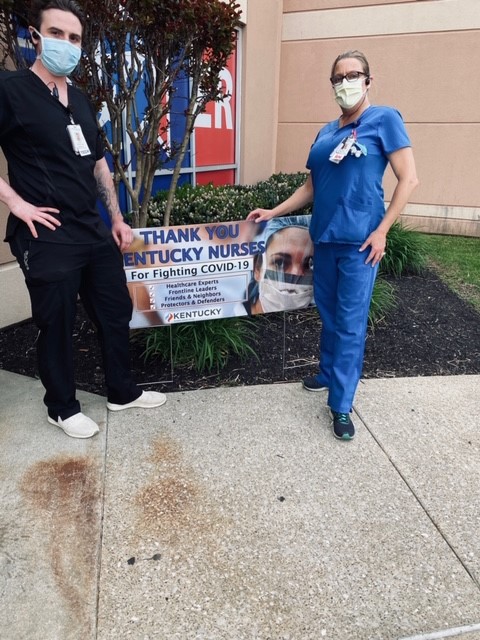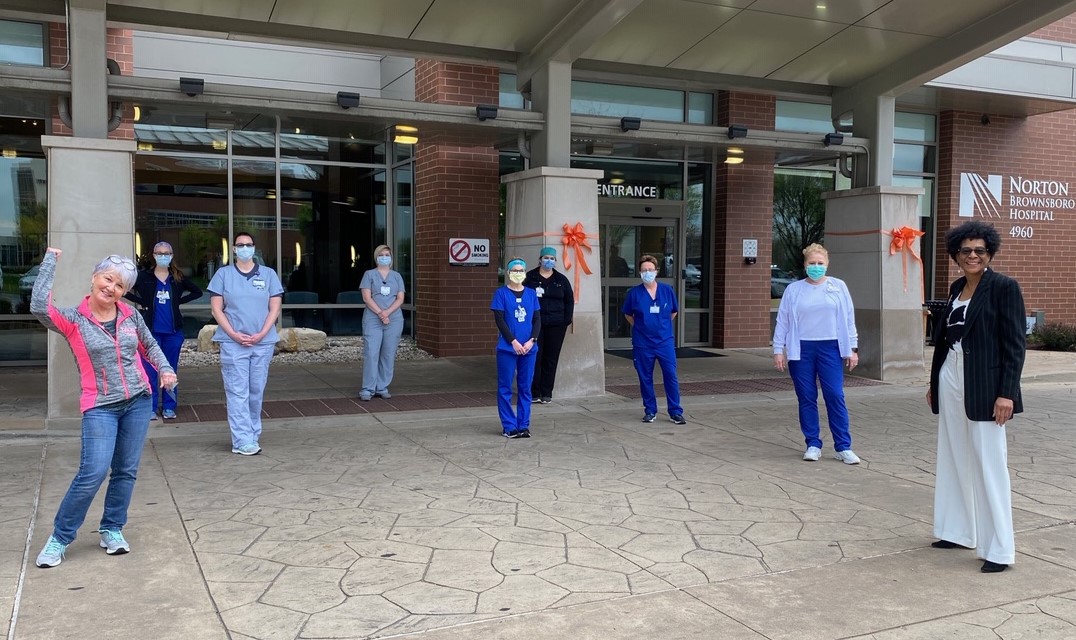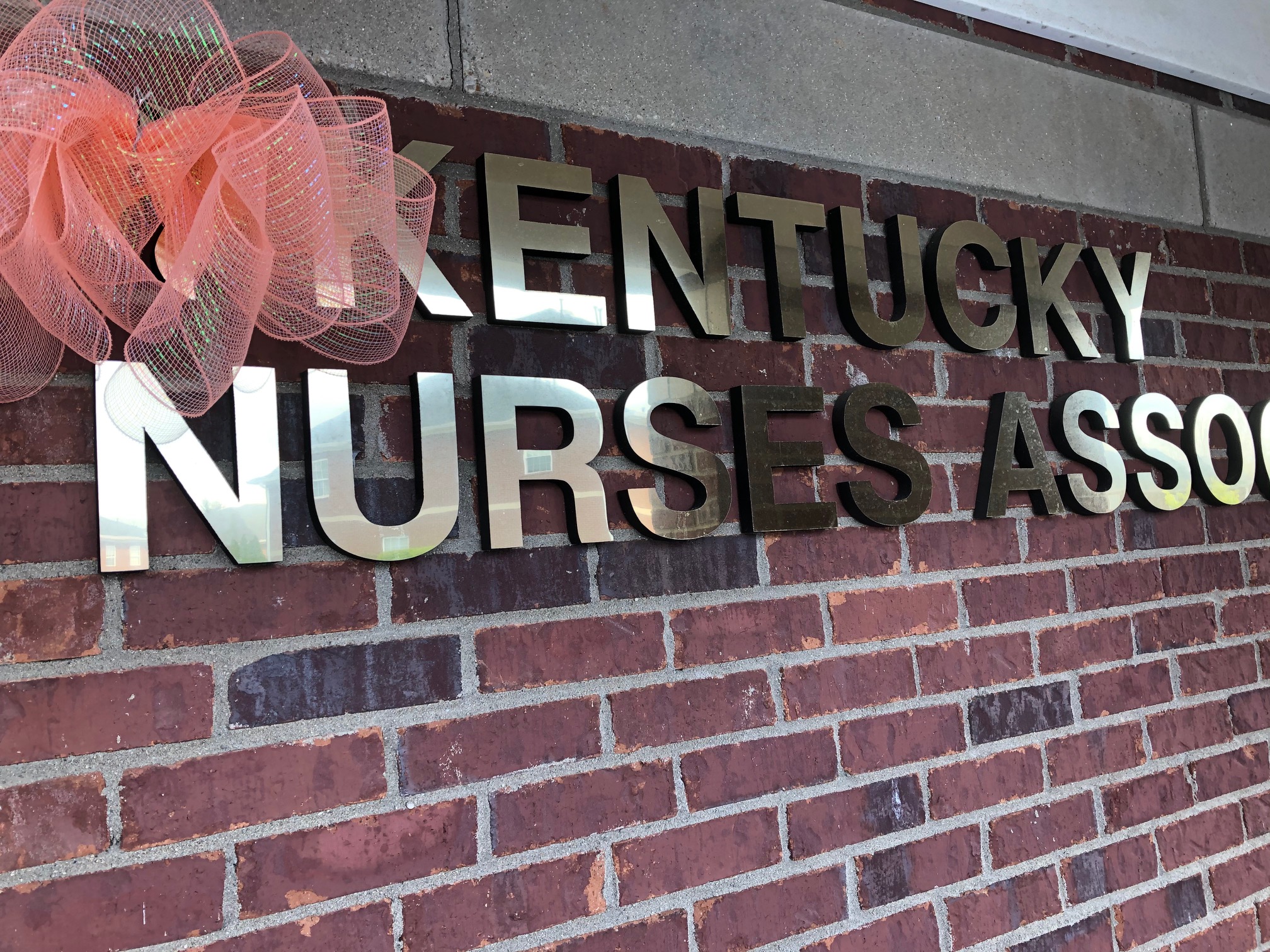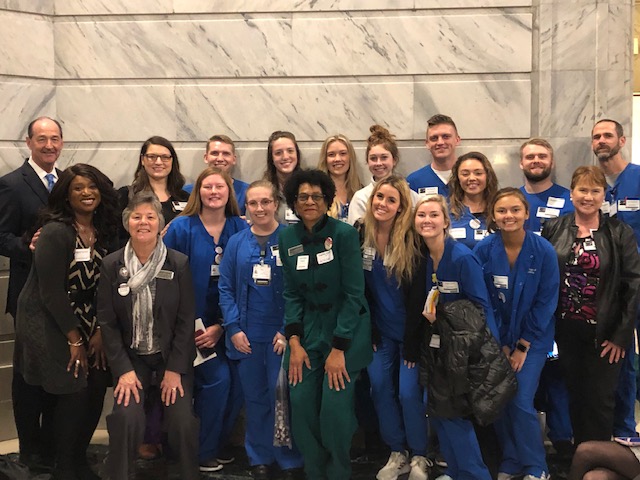Kentucky Nurses Association Leads by Example
Photography Provided
As a child, Delanor Manson first encountered the loving care that nurses provide watching her grandmother, who was a nurse at the old General Hospital in Louisville. Today, Manson is the chief executive officer of the Kentucky Nurses Association (KNA), and attributes her passion for supporting and advocating for nurses to the steadfast dedication exhibited by her grandmother.

The KNA is a professional organization that supports the state’s entire population of nurses. Essentially, it acts as a voice for Kentucky nurses and seeks to work for a healthier Kentucky, according to Manson.
In addition to promoting the essential role of registered nurses in the health care field, the KNA serves as an advocate for quality patient care in all settings. There are more than 90,000 nurses in Kentucky working in hospitals, physician offices, nursing care facilities, outpatient clinics, schools, correctional facilities and private settings, among others.
“In my first year of clinicals I watched nurses communicate with patients and their families and other professionals, and I thought, ‘Wow, they are so phenomenal,’” Manson says. “Then I also saw no one was helping them, so I decided while I was in nursing school that I was going to take care of nurses.”
That’s what Manson has done throughout her entire career. In each of her varied professional roles, she has sought to aid nurses in their quest to aid others.
Manson earned degrees in nursing and health care management, and has been a dynamic leader in both patient care as well as health care administration. She achieved the rank of captain in the U.S. Navy. In her 27 years in the Navy, she applied her nursing education in various positions in the U.S. as well as Japan, Great Britain, Germany, Italy and Puerto Rico. Delanor is the former deputy secretary for the Kentucky Cabinet for Health and Family Services. Prior to her work at the KNA, she was the associate vice president of research and design at Hosparus Health in Louisville. There, she provided leaders with innovation strategies, project design and management, and conducted research on best practices in electronic health record management.
According to Manson, when the KNA was founded in 1906 the intent was to promote the profession of nursing, and set a standard for education and training. That mission has expanded since then, but the crux of the organization’s vision remains the same.
“The founding mothers established and maintained an educational standard, and instituted advocacy for nursing and nurses,” Manson says.

The association’s founders established a foundation to advocate for the highest level of education, encouraged employers to ensure safe workplaces for nurses, and lobbied legislators for policies to keep nurses safe.
The KNA is a constituent member of the American Nurses Association, which operates for registered nurses in the U.S. throughout its 54 state and territorial associations. The KNA has 11 chapters around the commonwealth and is the only statewide organization that supports every nurse.
“When you have that many people on the front lines providing health care, you have to have a strong foundational base,” Manson says.
In Kentucky, approximately one-third of nurses work in hospitals, leaving about 60,000 nurses utilizing their skills in the aforementioned settings. Manson says the KNA has focused recent efforts on educating the general population on the varied skills of nurses, and advocating for their inclusion on community boards and foundations to help improve the health of the nation.
The initiative is in lockstep with the World Health Organization, which designated 2020 as the International Year of the Nurse and Midwife.
“We have been focusing on really helping people to see nurses in a broader light, to understand how nurses actually impact the health of the nation,” Manson says.
No health care crisis in modern memory has tested the resolve and tenacity of nurses quite like the coronavirus pandemic. Since COVID-19 upended the world earlier this year, health care professionals have been on the front lines, risking their own lives to care and advocate for patients.
“When COVID started, I wasn’t sure how the KNA as an organization was going to support nurses on the front lines,” Manson says. “We started getting calls from nurses asking, ‘What should I do? Should I go to work?’ I began to think, ‘How can we support them and let them know we are working for them?’”
The KNA created the Kentucky Nurses Helping Nurses program to let all nurses know they are not alone. The program is a volunteer network of active and retired nurses who have expertise in mental health nursing, and are available to support nurses as they care for patients and families in this unprecedented time. The initiative is a collaborative effort between the KNA and the International Society of Psychiatric-Mental Health Nurses.
“We wanted them to know we see you, we support you,” Manson says.

The KNA also launched the Apricot Ribbon Campaign to show support for health care workers during the pandemic. The color apricot was chosen because it is in the orange color palette, which is often associated with optimism. Manson says the campaign was designed to honor and recognize nurses and other health care professionals, while honoring social distancing.
With the help of the University of Louisville’s Speed School of Engineering, the association also packaged and sent 1,000 face shields to nurses. Hundreds of gallons of hand sanitizers were also donated, packaged and delivered to essential workers.
The pandemic has reminded Manson that every nurse is a leader.
“Nurse leaders do critical things,” Manson says. “They execute critical thinking skills. They assess. They come up with a plan based on that assessment, and they execute. Every nurse. Period.”
Manson has a message for community and state leaders across the commonwealth: Include nurses in decision-making bodies that could have an impact on public health.
“The things I’ve done, most would see as not the traditional path for a nurse,” Manson says. “I took the knowledge of being a nurse and leader to every job I had, every opportunity I had. If you want to grow an organization, if you want to impact your community, you need to have a nurse on your board.”
To learn more about the Kentucky Nurses Association or to join, visit kentucky-nurses.nursingnetwork.com.






